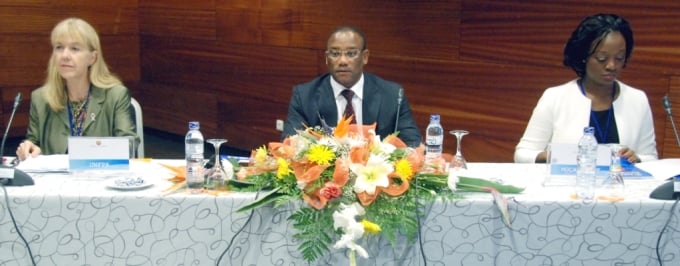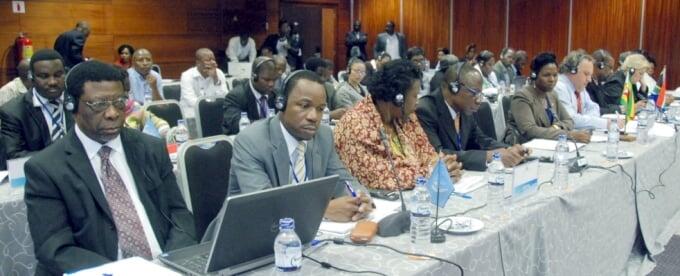MAPUTO, Mozambique, 28 June — Ministers from the Southern Africa Development Community (SADC) responsible for population and development planning have re-affirmed their commitment to implementation of the global plan of action for population and development programme.
In a resolution at the end of their one-day ministerial meeting in Maputo yesterday, the ministers agreed to a set of 64 recommendations that would help the estimated 280 million people in the region ‘have a more equal and more sustainable future’.
While much has been done to implement the International Conference on Population and Development (ICPD) Programme of Action in the SADC region, many challenges remain, which testifies to the validity of the Cairo post-2014 agenda on population and development, said Bettina Maas, UNFPA Representative in Mozambique.
Some countries in the region have made remarkable progress in implementing the Programme of Action, she said. She appealed for continued and effective integration of population issues into the global, regional and national development agenda, including sexual health and reproductive rights, gender, HIV and AIDS education girl, rapid urbanization and migration.
“Given the challenges of population and development in the sub-region, UNFPA will continue to support both governments and civil society organizations in the implementation of the recommendations in order to create a sustainable future for the population living in region,” she said.

Prioritizing maternal health
In addition to recommendations in the area of economic population and sustained economic development, population growth, gender equality and empowerment of women, the ministers focused on maternal health, reproductive rights and reproductive health.
Specifically, actions to be taken by various countries included t raining and retaining of skilled health personnel, especially doctors and midwives; and increasing universal access to quality, affordable, comprehensive and integrated maternal health, sexual and reproductive health and rights services, including voluntary family planning.
While many countries in the region are at different stages of health policy and programme implementation, the ministers agreed to increase community awareness on the importance of early attendance of ante-natal care services, with emphasis on the first trimester of pregnancy; and increase funding and resource mobilization in accordance with the Abuja Declaration Programme of Action, requesting an allocation of 15 per cent of the national budget to the health sector.
The ministers also agreed to uphold and strengthen SADC commitments in the area of women’s health and child health, sexual and reproductive health and rights, through the implementation of the Maputo Plan of Action, Campaign on Accelerated Reduction of Maternal Mortality in Africa (CARMMA) and other national, regional and global agreements.
The ministers’ meeting was preceded by a technical meeting of experts, at which the report was developed, generated as it was from various countries in the region. The overall report will feed into the continental report on ICPD beyond 20 years and the new international development process. Delegates from 11 countries of the 15-member regional bloc attended the consultation.
~ Adebayo Fayoyin
Regional Communication Adviser, UNFPA


